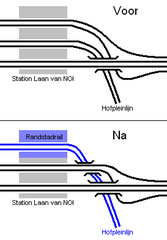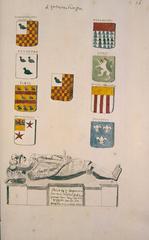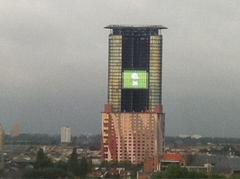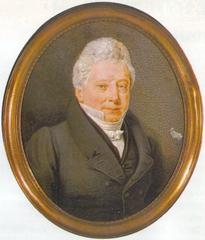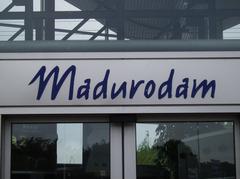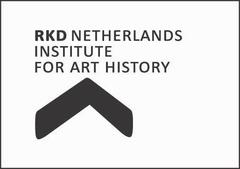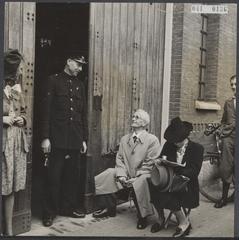
Embassy of Germany The Hague: Visiting Hours, Tickets, and Comprehensive Guide
Date: 04/07/2025
Introduction
The Hague, known as the “City of Peace and Justice,” is a vital international hub in the Netherlands, celebrated for its concentration of embassies, diplomatic missions, and significant global legal institutions. At the heart of this landscape stands the Embassy of Germany, serving not only as a center for consular services such as visa processing and document legalization, but also as a bridge fostering German-Dutch cultural and educational exchange. With a streamlined appointment system and a location surrounded by historical landmarks, the embassy offers visitors an efficient, secure, and culturally rich experience. This guide provides essential information for anyone planning to visit the German Embassy in The Hague, from appointment procedures to tips for exploring nearby attractions. (German Embassy Official Site, Diplomat Magazine, Germany Visa Application Process)
Table of Contents
- Introduction
- The Hague’s Diplomatic Landscape & Historical Context
- German Embassy The Hague: Location & Architecture
- Visiting Hours, Appointment System, and Security Protocols
- Visa Application & Consular Services
- Document Legalization & Certification
- Accessibility & Visitor Facilities
- Cultural and Educational Initiatives
- Nearby Attractions & Travel Tips
- Frequently Asked Questions (FAQs)
- Conclusion & Final Recommendations
- References
The Hague’s Diplomatic Landscape & Historical Context
The Hague’s reputation as a diplomatic powerhouse dates back to the late 16th century. Today, it hosts over 100 embassies and is home to international organizations such as the International Court of Justice and the International Criminal Court (Diplomat Magazine, ifutures.discourse.group). Germany’s diplomatic presence here underscores the deep-rooted and evolving relationship between Germany and the Netherlands, with the embassy actively involved in cultural exchange, bilateral cooperation, and EU policy discussions.
German Embassy The Hague: Location & Architecture
Strategically situated in The Hague’s diplomatic quarter, the German Embassy is close to the Binnenhof, Peace Palace, and various international institutions. The embassy building reflects modern German architectural values—combining openness, security, and sustainability. While public tours of the interior are not available, the grounds and exterior are notable for their design and well-maintained appearance (official embassy website, danny-cph.com).
Visiting Hours, Appointment System, and Security Protocols
Visiting Hours & Appointment Policy
- Business Days: Monday to Friday (excluding Dutch and German public holidays)
- Consular Service Hours: Generally 9:00 AM – 12:00 PM; always confirm via the official website
- Appointments: Mandatory for all consular services (visa applications, passport renewals, legalizations)
Book your appointment online through the embassy’s portal or, for visa services, through authorized providers like VFS Global (Germany Visa Information). Walk-ins are not permitted.
Security & Entry Procedures
- Arrive at least 15 minutes early for security screening
- Present a valid government-issued photo ID
- Large bags, electronics, and restricted items are not allowed inside; there are no storage facilities on site
- Photography within the embassy grounds is prohibited
Visa Application & Consular Services
Visa Types & Eligibility
The embassy processes:
- Short-term Schengen visas (Type C): For stays up to 90 days (Germany Visa Application Process)
- Long-term national visas (Type D): For stays longer than 90 days (study, work, family reunification)
Citizens from many countries do not require a visa for short stays but may need an ETIAS travel authorization starting April 2027.
Required Documents
- Valid passport (with at least two blank pages, valid for three months beyond trip)
- Completed visa application form (available via VIDEX portal)
- Biometric passport photos
- Proof of travel and accommodation
- Evidence of financial means
- Travel insurance (minimum €30,000 coverage)
- Additional documents according to visa type (e.g., employment, study, family)
Documents must be in German or English (or certified translation).
Submission & Processing
- Submit applications in person; bring all originals and copies
- Biometric data (fingerprints, photo) are collected
- Processing times: Schengen visas (10–15 business days), national visas (up to 3 months)
- Fees: Schengen visa €90, national visa €75 (non-refundable)
(How to Germany, Germany Visa Information)
Document Legalization & Certification
The embassy certifies and legalizes documents such as birth, marriage certificates, and academic records for use in Germany. Some documents may require an apostille, but not all apostilles are recognized by German authorities. Always check current embassy requirements before proceeding (How to Germany).
Accessibility & Visitor Facilities
- The embassy offers accessibility features, including ramps and accessible restrooms
- Notify the embassy in advance if special assistance is required
- The location is well-served by trams and buses; limited parking available
- Many cafes, restaurants, and hotels are nearby (Dreams in Heels)
Cultural and Educational Initiatives
The German Embassy partners with the Goethe-Institut and other organizations to promote German language courses, cultural festivals, and educational events. It is a key participant in the annual Embassy Festival, which showcases national traditions and cuisine.
Nearby Attractions & Travel Tips
While visiting the embassy, consider exploring:
- Peace Palace: Headquarters of the International Court of Justice and a symbol of peace (peacepalace.org)
- Binnenhof: Historic Dutch parliament building (danny-cph.com)
- Mauritshuis Museum: Home to Dutch masterpieces
- Noordeinde Palace: The working palace of the Dutch king (livingnomads.com)
All are within walking distance and easily accessible.
Frequently Asked Questions (FAQs)
Q: What are the embassy’s visiting hours?
A: Monday to Friday, typically 9:00 AM – 12:00 PM for consular services; confirm on the official website.
Q: Do I need an appointment?
A: Yes, for all services.
Q: What documents are required for a Schengen visa?
A: Passport, application form, photos, proof of travel/accommodation, finances, insurance, and supporting documents as per visa category.
Q: Is the embassy accessible to people with disabilities?
A: Yes; contact in advance if special arrangements are needed.
Q: Are tourist visits or guided tours available at the embassy?
A: No, entry is restricted to those with official business or appointments.
Conclusion & Final Recommendations
Visiting the Embassy of Germany in The Hague is a straightforward process with advance planning, proper documentation, and adherence to security protocols. The embassy serves as a vital link between Germany and the Netherlands, offering efficient consular services and promoting cultural understanding. Enhance your visit by exploring nearby historical sites, and consult official resources or the Audiala app for the latest updates and personalized tips.
For emergencies, German nationals should contact the embassy immediately for assistance. Always check the embassy’s website before your visit for real-time updates.
References
- German Embassy Official Site
- Diplomat Magazine
- Germany Visa Application Process
- ifutures.discourse.group
- Official Dutch Government Portal
- danny-cph.com
- peacepalace.org
- livingnomads.com
- Germany Visa Information
- How to Germany
- Dreams in Heels
- Embassy Festival






